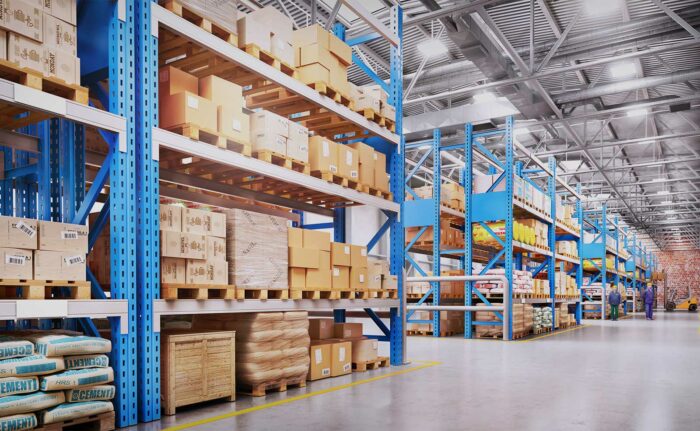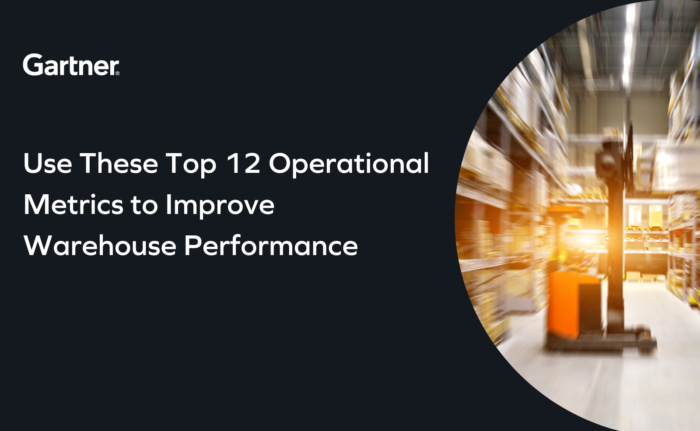
Today’s 3PLs are concerned about efficiency, accuracy, and client satisfaction and working with the right 3PL consultant can be the key to staying competitive in this rapidly evolving market. A skilled consultant doesn’t just help you navigate the maze of 3PL warehouse management software—they ensure that the system you choose aligns with your operational goals, integrates with other systems, and scales with your business. They’ll guide you through best practices, mitigate potential risks, and streamline communication between all stakeholders.
If you’re unsure about partnering with a 3PL consultant, this post will break down exactly how they can help set your business up for long-term success and effective 3PL management, including:
- What is a 3PL consultant?
- Who might want to work with a 3PL consultant?
- What are the benefits of working with a 3PL consultant for a WMS selection and implementation?
- What should I look for in a 3PL consultant?
What is a 3PL Consultant?
With a focus on enhancing warehouse management systems (WMS), transportation management, and overall supply chain performance, a 3PL consultant works closely with logistics providers to identify areas for improvement, streamline processes, and adopt best practices. They guide 3PLs in navigating the complexities of their operations, ensuring alignment with business goals, reducing costs, improving delivery times, and enhancing service levels, all while positioning the 3PL for growth and competitive advantage.
Who Might Want to Work With a 3PL Consultant?
3PLs may seek help from a consultant for several reasons, including:
- Meeting Growth and Scaling Needs: As 3PLs grow, they often face challenges in scaling their operations efficiently. A consultant helps design scalable processes, optimize resources, and implement systems like WMS or TMS that support sustainable growth without compromising service quality.
- Improving Customer Service and Offering Value-Added Services: To remain competitive, 3PLs need to go beyond basic logistics and offer value-added services such as kitting, assembly, or customized packaging. A consultant can guide 3PLs in expanding their service portfolio and becoming strategic partners that clients enjoy working with, improving customer loyalty and satisfaction.
- Enhancing Billing and Financial Processes: Managing complex billing structures, especially when dealing with multiple clients and customized services, can be challenging. A consultant can streamline billing processes, improve accuracy, and introduce best practices for managing finances, ensuring smooth transactions and client satisfaction.
- Maximizing Space Utilization: As warehouse space becomes more expensive, optimizing how space is used is critical for profitability. A consultant can offer expertise in warehouse space utilization, storage solutions, and inventory management techniques that maximize space efficiency, reduce operational costs, and increase throughput.
- Adopting New Technologies: Many 3PLs struggle to keep up with the fast pace of technological advancements. A consultant provides guidance on adopting new technologies, such as automation, robotics, or data analytics, to enhance productivity and stay competitive in the logistics landscape.
- Operational Efficiency: Consultants can help identify bottlenecks or inefficiencies in existing workflows and suggest improvements, reducing lead times, improving order accuracy, and increasing overall operational efficiency.
What are the Benefits of Working With a 3PL Consultant for a WMS Selection and Implementation?
In our white paper, 8 Reasons Hiring a WMS Consultant Makes Sense, we cover how a WMS consultant can help you in your WMS software selection and implementation process, including: define your unique business requirements, introduce you to best practices, mitigate pitfalls in the WMS selection process, facilitate communication between stakeholders and vendors, and more. Here’s a quick summary of the benefits highlighted:
- Expertise: A 3PL consultant brings in-depth knowledge of supply chain systems, offering valuable insights that go beyond technology. They focus on improving processes that many supply chain managers may overlook, ensuring that 3PL solutions align with overall business objectives and industry best practices.
- Business Requirements: Consultants help define your business’s unique operational needs, ensuring the selected technology fits seamlessly. By reviewing operations from an objective viewpoint, they highlight opportunities for improvement and growth, aligning your business with industry standards.
- Avoid Pitfalls: The process of selecting new technology is complex and prone to errors. A consultant mitigates risks by identifying common pitfalls and guiding you through each phase, avoiding costly mistakes that could arise from misaligned choices or incomplete evaluations.
- Industry Knowledge: Consultants are well-versed in the latest supply chain trends and technologies through continual learning and industry events. Their broad exposure enables them to bring cutting-edge solutions and strategic insights from various projects beyond just WMS, improving overall supply chain performance.
- Facilitating Communication: A consultant acts as a bridge between your internal team and vendors, ensuring clear communication and alignment. They ensure that business requirements are fully understood and met by vendors, leading to a smoother, more effective selections and implementations.
- Cost Savings: By making informed decisions and avoiding mistakes, consultants can save you money. Their expertise ensures the right system is chosen, avoiding unnecessary customizations and helping negotiate better pricing with vendors, resulting in long-term cost savings.
- Structured Methodology: Consultants bring a proven methodology to the selection and implementation process, ensuring it is thorough and organized. They handle everything from initial assessments to final contracts, providing detailed requirements and overseeing custom demonstrations to ensure the chosen solution fits your specific business needs. And once technology is selected, consultants lead the implementation process, including configuration, integration, and staff training.
What Should I Look For in a 3PL Consultant?
A 3PL consultant should have deep experience in the logistics and supply chain industry, especially in understanding Warehouse Management Systems (WMS). They should be familiar with the specific needs of 3PLs, such as managing multi-client operations, scalability, and flexibility. Their WMS knowledge will help ensure the system aligns with your operational requirements and long-term goals. Look for consultants with a proven track record of successful supply chain implementations for other 3PLs. Case studies or client testimonials can give you insight into their ability to handle complex logistics challenges, navigate vendor negotiations, and deliver solutions that improve efficiency and productivity. Strong communication skills are also critical, as they’ll need to collaborate effectively with your team, vendors, and other stakeholders throughout the process.
If you’re seeking a 3PL consultant to help you navigate growth, enhance customer offerings, improve internal processes, or adopt innovative technologies, contact us. We’d be happy to introduce you to our partners who specialize in your industry.
You might also like our answer to the question, “What is a 3PL warehouse management system?” here.


